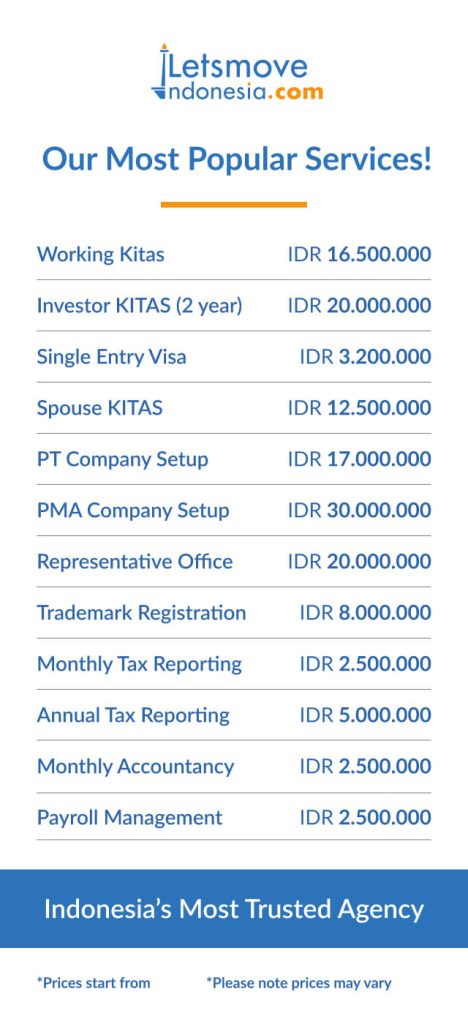Investing in real estate can be a profitable venture, particularly in Indonesia. With its expanding economy and rising property demand, purchasing property in Indonesia can provide enormous opportunities for both locals and foreigners. Before entering the market, however, it is critical to understand the legal guidelines and regulations governing property ownership.
This article will teach you how to buy property in Indonesia so that you can make informed decisions and avoid any potential legal complications. This guide will provide you with the knowledge you need to successfully navigate the Indonesian real estate market, from understanding land ownership laws to navigating the complex bureaucracy.
A brief overview of Indonesia’s property market
The property market in Indonesia has grown significantly in recent years, owing to factors such as urbanisation, rising income levels, and favourable government policies. The country’s expanding middle class and growing population are driving demand for residential properties in both the primary and secondary markets. Furthermore, due to its strong economic potential and relatively low property prices in comparison to other Southeast Asian countries, foreign investors have been drawn to Indonesia’s property market.
However, issues such as complex regulations, infrastructure limitations, and a lack of quality affordable housing remain. Nonetheless, the Indonesian property market is poised for further development and investment opportunities as a result of ongoing reforms and government initiatives.
Importance of understanding legal guidelines when buying property in Indonesia
Understanding legal guidelines when purchasing property in Indonesia is critical due to the country’s unique land ownership system. Foreigners are only permitted to own property in certain designated zones, such as Bali or parts of Jakarta, and even then, restrictions and requirements must be met. Failure to understand and follow these guidelines can result in legal problems and a loss of investment.
There are also complicated land tenure regulations, such as customary land rights and government land titles. As a result, before making any property purchase in Indonesia, it is critical to seek professional legal advice and thoroughly research the legal aspects.
Understanding Foreign Ownership Restrictions
Explanation of Indonesia’s laws regarding foreign ownership of property
Understanding Indonesia’s foreign ownership restrictions is critical for those looking to invest in real estate in the country. Foreigners are not permitted to own land outright in Indonesia under Indonesian law. However, there are several ways for foreigners to legally own property in the country. A long-term lease agreement, typically for up to 30 years, is one common method. Another option is to establish a local entity to hold the property, such as a foreign-owned company.
This necessitates compliance with specific regulations and can be a more complex and costly process. Potential investors must thoroughly research and understand these laws in order to ensure compliance and make informed decisions about property ownership in Indonesia.
Highlighting restrictions and exceptions for different property types (land, houses, apartments)
Understanding Indonesian foreign ownership restrictions is essential when it comes to various property types such as land, houses, and apartments. Foreign individuals are not permitted to own freehold land, but they may lease it for a maximum of 30 years, which can be extended for another 20 years.
There are, however, exceptions for foreign investors who set up a foreign-owned limited liability company in Indonesia. Foreigners can own residential houses but not the land on which the houses are built. Finally, foreigners can own apartments under a complex mixed-use title as long as the apartment complex follows certain regulations.
Identifying the Right Property in Indonesia
Researching the desired location and property type
When researching the desired location and property type in Indonesia, it is essential to consider various factors to identify the right property. Firstly, understanding the local market and future development plans in the area can help gauge the property’s potential for appreciation. Additionally, considering personal preferences such as proximity to amenities, public transportation, and schools is crucial for a comfortable lifestyle. It is also advisable to consult with local real estate agents who have in-depth knowledge of the market and can provide guidance on property types that align with specific needs. Ultimately, thorough research and careful consideration of these factors will ensure the identification of the right property in Indonesia.
Understanding the different types of ownership (Hak Milik, Hak Guna Bangunan, Hak Sewa)
Understanding the various types of ownership in Indonesia is important when looking for the right property. Hak Milik, Hak Guna Bangunan, and Hak Sewa are the three main types. Hak Milik refers to freehold ownership, which gives the owner complete control over the land and property. Hak Guna Bangunan is a long-term lease that allows individuals or businesses to occupy and use the property for a set period of time, usually 30 years but extendable to 70 years.
Hak Sewa, on the other hand, is a short-term leasehold that grants the tenant temporary access to the property for a set period of time. Understanding these different types of ownership will help investors make more informed decisions in the Indonesian real estate market.
Factors to consider when choosing a property (budget, amenities, future prospects)
There are several factors to consider when looking for the right property in Indonesia. To begin, the budget is critical in the decision-making process. It is vital to figure out the maximum amount of money that can be invested and then find a property within that range. Second, amenities are essential. Facilities such as schools, hospitals, shopping malls, and transportation options should be considered.
Furthermore, the property’s future prospects should be evaluated. Long-term benefits can be obtained from areas with development or growth potential. Considering these factors will assist individuals in making an informed decision and selecting the ideal property.
Engaging a Reliable Real Estate Agent or Consultant
The benefits of hiring a professional to navigate the Indonesian property market
When navigating the Indonesian property market, working with a trustworthy real estate agent or consultant can provide numerous advantages. These experts have extensive knowledge and experience in the field, allowing them to offer valuable insights and advice throughout the buying or selling process. They have a thorough understanding of the local market conditions, regulations, and trends, allowing their clients to make well-informed decisions.
Hiring a professional saves time and effort because they handle all of the paperwork, negotiations, and property inspections. Furthermore, their network and connections can help connect buyers with potential sellers and vice versa, increasing the likelihood of finding the ideal property or buyer. Overall, working with a professional in the Indonesian real estate market is critical for a smooth and successful real estate transaction.
How to choose a reputable real estate agent or consultant
When it comes to buying or selling property, it is important to consult with a trustworthy real estate agent or consultant. With so many agents on the market, it is critical to select one with a good reputation and track record. Begin by conducting extensive online research and reading client testimonials and reviews. Look for agents who specialise in your desired area and have extensive market knowledge.
It is also important to conduct interviews with potential candidates and inquire about their experience, strategies, and fees. A trustworthy agent will be communicative, and transparent, and provide regular updates throughout the process. Trust your instincts and go with an agent who makes you feel at ease and confident in your abilities.
The role of an agent in assisting with legal documentation and negotiations
When it comes to legal documentation and negotiations, hiring a trustworthy real estate agent or consultant is critical. These professionals play an important role in assisting clients through the complicated process of buying or selling real estate. In terms of legal documentation, agents ensure that all necessary paperwork is completed and filed correctly, lowering the risk of potential legal issues.
Furthermore, agents are well-versed in legal terminology and procedures, allowing them to effectively negotiate on behalf of their clients. They analyse legal contracts and negotiate appropriate terms and conditions, ensuring that their client’s interests are protected throughout the transaction. In general, an agent’s role is critical in guiding clients through the legalities and negotiations involved in real estate transactions.
Conducting Due Diligence
Conducting due diligence is crucial when considering any real estate transaction. Thoroughly checking the property and its history allows potential purchasers to make informed decisions. Verifying the legal status of the property, including land certificates and compliance with zoning regulations, ensures that the property is legally sound. Additionally, checking for any encumbrances, disputes, or pending legal issues helps to identify potential risks and liabilities. By conducting due diligence, buyers can mitigate the chances of encountering unforeseen obstacles and make sure they are fully aware of the property’s true value and any associated risks or limitations.
Step-by-step guide to buying property in Indonesia
Understanding the purchase process is essential when purchasing property in Indonesia. The first step is to become acquainted with the government’s regulations and restrictions on foreign property ownership. It is also critical to conduct extensive research on the location and type of property you intend to purchase. Next, hire a reputable local agent or notary who can guide you through the legal complexities. Negotiate the price and terms of the purchase agreement after you’ve found a suitable property.
A notary will prepare the necessary documents for transferring ownership once both parties have agreed. Finally, to ensure a successful purchase, the property must be registered in your name and all associated taxes and fees must be paid.
Explanation of the necessary legal documents and requirements
Understanding the purchase process entails becoming acquainted with the necessary legal documents and requirements. When purchasing a home, several important documents must be considered. The purchase agreement, which outlines the terms and conditions of the transaction, is the most important document. Legal documents like title deeds, mortgage agreements, and property surveys may also be required.
It is important that these documents be thoroughly reviewed to ensure that there are no discrepancies or potential legal issues. Furthermore, the local jurisdiction may impose specific requirements, such as obtaining permits or certifications. Understanding and adhering to these legal documents and requirements allows one to smoothly navigate the purchase process while mitigating any potential legal risks.
Overview of the payment process and taxes involved
Customers typically have several payment options when making a purchase, including cash, credit cards, and online payments. Each payment method has advantages and disadvantages, with credit cards being the most convenient and online payments being the most secure and quick. It should be noted, however, that different taxes may apply depending on the nature of the purchase and local regulations.
These taxes could include sales tax, value-added tax, or custom duties, with rates varying by region. Understanding the payment process and the taxes involved allows people to make informed decisions and budget their expenses accordingly.
Hiring a Qualified Notary/Public Official
When it comes to real estate transactions, hiring a qualified notary/public official is absolutely essential. These professionals play an important role in ensuring the process’s legality and authenticity. It is critical to consider the qualifications of a notary/public official when looking for one. They should be well-versed in property laws, regulations, and document authentication procedures.
They must also be trustworthy, dependable, and detail-oriented. One of the most important reasons to hire a qualified notary/public official is to ensure a proper deed and clear title transfer. This guarantees the buyer legal ownership of the property and protects them from any future disputes or claims.
Dealing with Land Acquisition Issues
Potential buyers may face difficulties in acquiring land in Indonesia. The country has a complicated land tenure system, with competing claims frequently arising as a result of historical and administrative factors. To address these concerns, it is crucial to thoroughly investigate the land’s history, confirming ownership and ensuring there are no disputes or competing claims.
Seeking legal counsel from an experienced attorney can help you navigate the complexities of land acquisition and ensure a safe and trouble-free transaction. This provides buyers with peace of mind and protects them from future legal issues or disputes.
Finally, it is essential to review the legal guidelines for purchasing property in Indonesia. Before making any decisions, investors should be well-informed and seek legal counsel. Understanding local regulations is critical for a smooth and successful property transaction. Individuals can confidently explore the Indonesian property market if they understand the legal framework and follow the necessary procedures.
Indonesia, with its expanding economy and appealing investment opportunities, is a promising market for both locals and foreigners. However, it is critical to stay up to date on any changes in regulations and to seek professional assistance as needed. Investors can make informed decisions and capitalise on the potential of the Indonesian property market with the right knowledge and guidance.
Found this article interesting? Then check out our other useful articles about home loan mortgage here!
Exploring Possibilities of The Expat Mortgage in Indonesia
Your Path to Property Ownership: Essential Steps for Obtaining Mortgage in Indonesia
Decoding Indonesian Mortgage Products: The Essential Guide for Homebuyers
Top Banks that Partnered with LetsMoveIndonesia for Mortgage
Get Your Desired Mortgage with LetsMoveIndonesia: What You Need to Know











